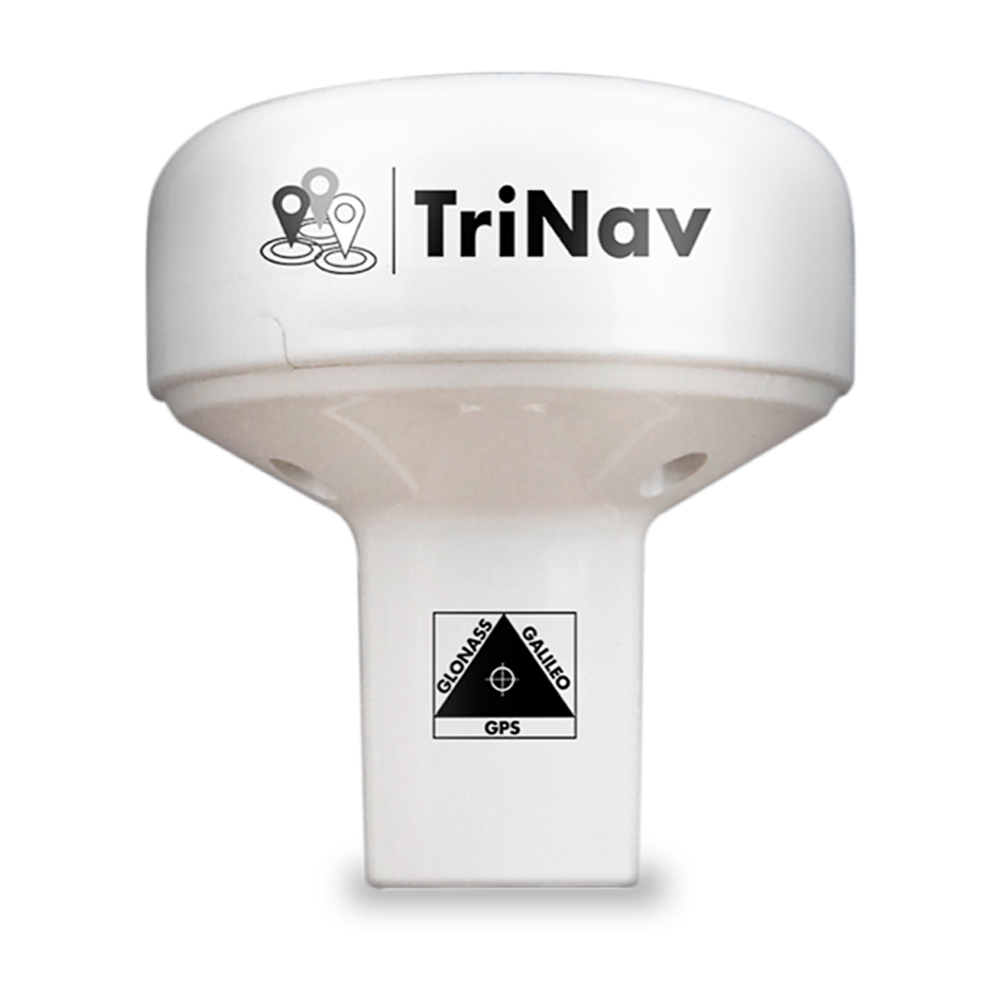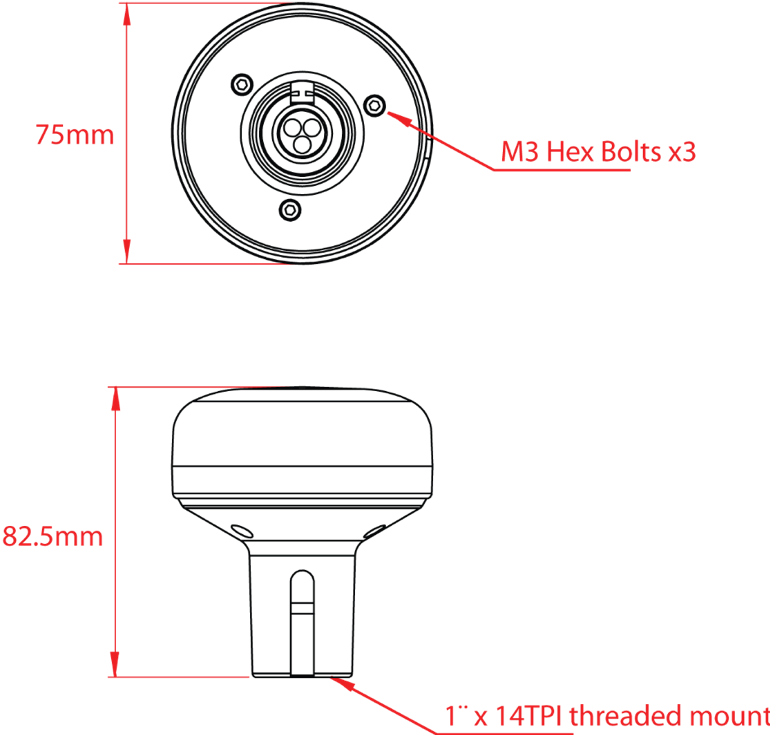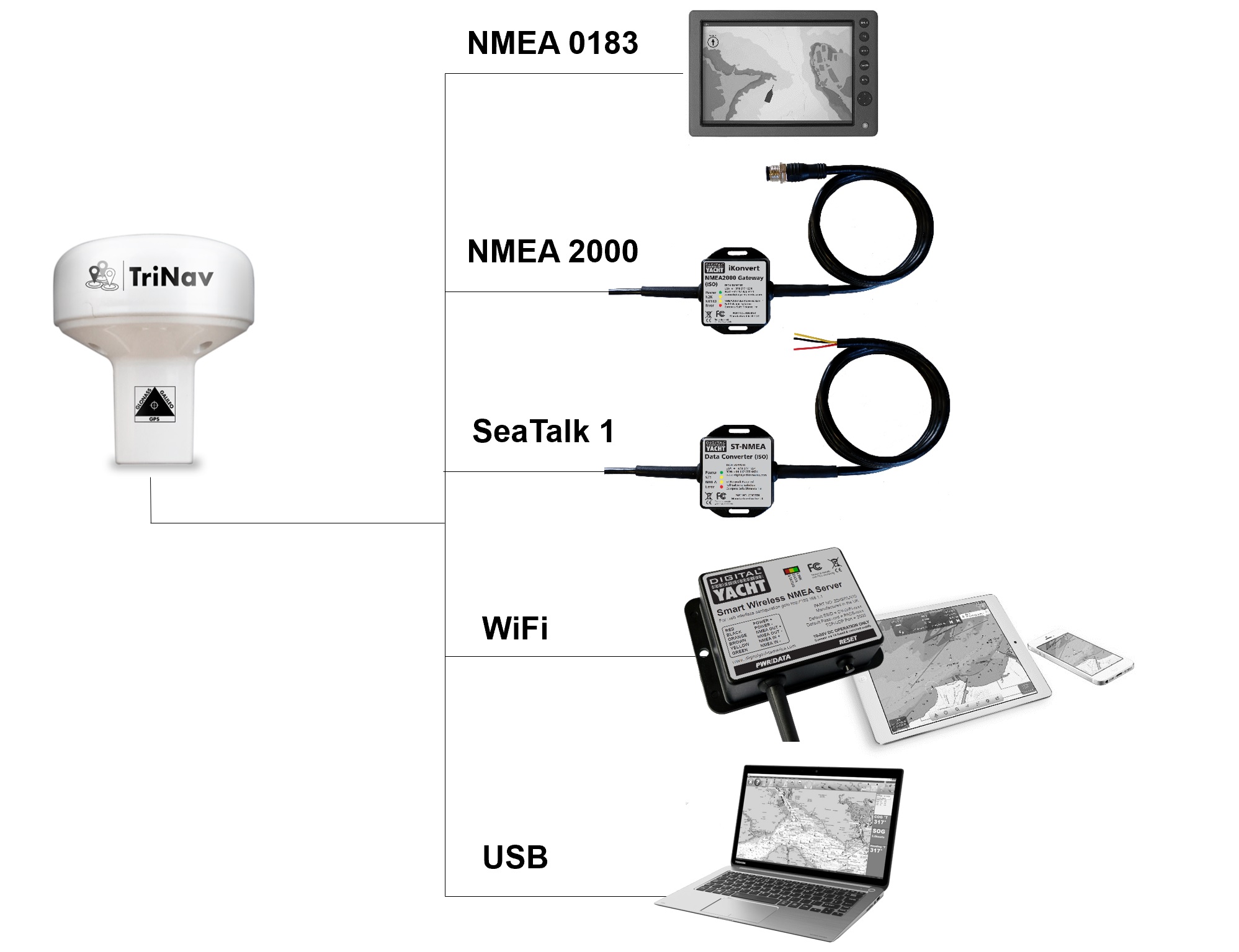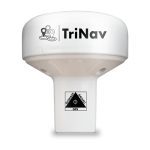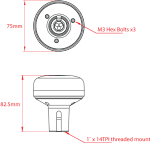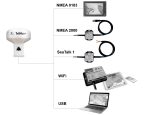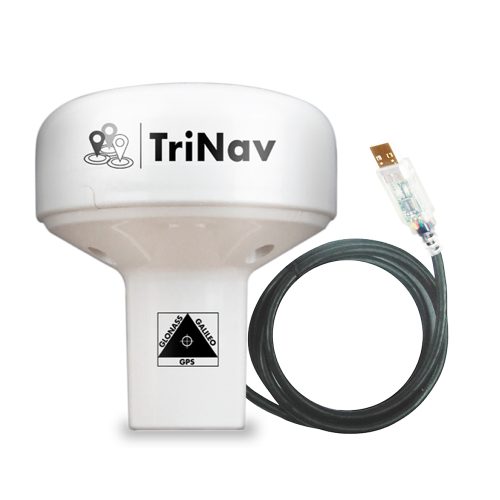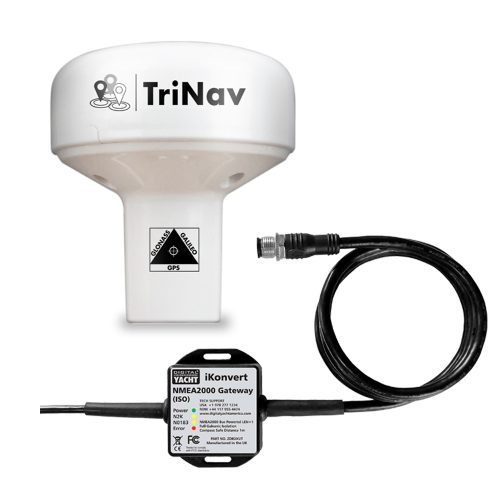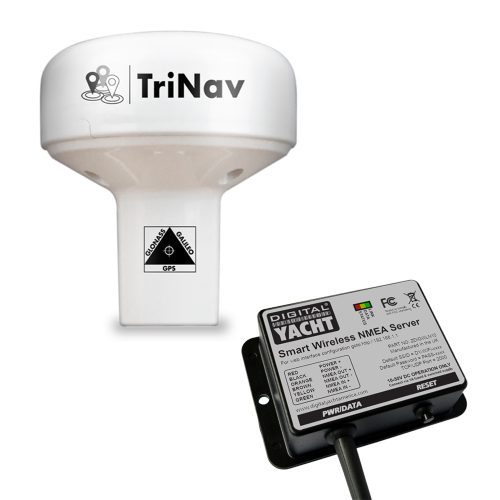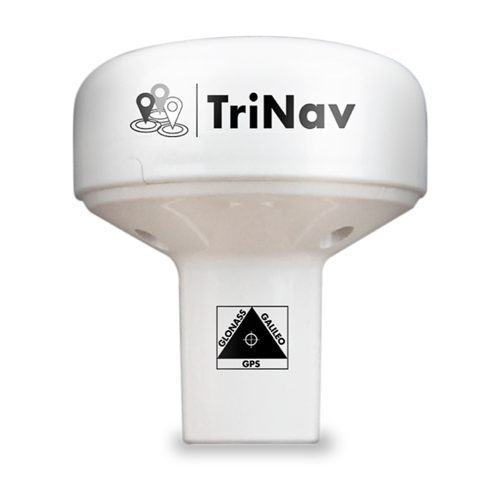Digital Yacht have unveiled their TriNav™ GPS160, a GPS antenna with NMEA 0183. This is a new, high performance positioning sensor using GPS, Glonass, and the new Galileo satellite systems. Therefore, providing exceptional position accuracy and redundancy. Typical accuracy is better than 1m. Data can also be set to output at up to 18Hz for smoother plotter track displays. TriNav™ software technology also improves positioning inaccuracy that could occur through spoofing and local interference.
GPS160 NMEA 0183
£162.00
“The GPS160, a high performance positioning sensor using GPS, Galileo, Beidou and Glonass satellite systems for exceptional positioning accuracies and redundancies. GPS160 has an NMEA 0183 interface.”
KEY FEATURES
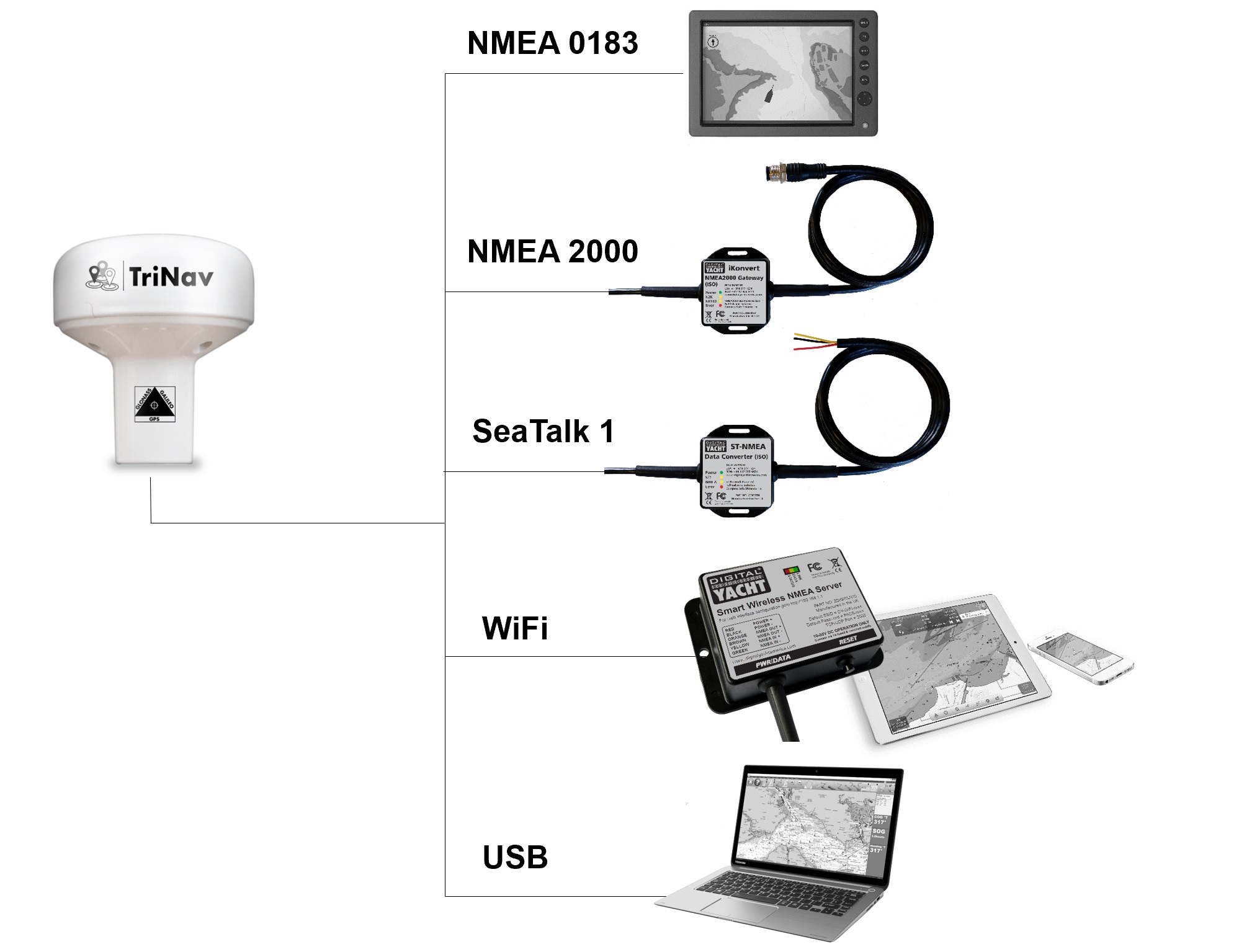
The device has a variety of modes through field programming. This includes single GNSS operation (eg Galileo only) as well as output configurations such as update rate, NMEA sentence structure etc.
The GPS160 with NMEA 0183 output (4800, 38400 and 115200 baud programmable). As well as a USB variant for PC, MAC and Linux. For NMEA 2000 systems, we offer a bundle with a Digital Yacht iKonvert NMEA 2000 gateway. Therefore allowing the easy and flexible install of NMEA 2000 without the need for cumbersome drop cables.
The GPS160 also supports a simple external MOB (man-over-board) switch or device. When triggered, the GPS160 creates a “synthesised” AIS SART MOB message on its NMEA output. This can then interface with a local plotter to identify the MOB. Most modern plotters support this with a clear MOB icon. As well as instant bearing and distance data to navigate to the casualty.
To learn how to wire the GPS16o to your navigation system click here
Galileo
Galileo is the new global navigation satellite system (GNSS) that has been in development over the past two decades. It joins the GPS and GLONASS systems and offers mariners a 3rd reliable positioning source. It is now fully operational as of 2020.
There are currently 22 satellites in usable condition. This means the satellite is working and adds to the service provision. There are then 2 satellites that are in “testing” and 2 more are marked as not available. The final constellation now consists of 30 satellites (24 operational and 6 spares) as of 2020.
October 2023 – New Features: All GPS160 models now feature a new GNSS engine that supports QuadNav technology. These models now support the Chinese Beidou satellites (as well as GPS, Glonas and Galileo), which means all position fixes, course and speed over ground calculations will now be utilising the strongest satellite signals from a network of over 100 satellites. This results in improved time to first fix, more robust operation against jamming, “spoofing” and outages and also improved current consumption (<25mA)
SPECIFICATIONS
- 72 channel GPS, Glonass , Beidou and Galileo GNSS positioning receiver
- Typically sub 1m accuracy thanks to QuadNav™ technology –combines all satellite data for optimum accuracy
- Can be configured as dedicated GPS, Glonass, Beidou or Galileo only device
- Refined anti-spoofing algorithm for robust performance of position and interference rejection
- Available Seatalk1 (with Seatalk converter), NMEA 2000 (with iKonvert interface) and wireless (with WLN10SM) variants
- GPS160USB also available with USB connection for PC/MAC
- User/field can select 4800, 38400 and 115200 baud operation through simple internal DIP switches
- Many formats of NMEA data output including datum information –user can configure through internal DIP switches
- Up to 18Hz update rate (user can select)
- Ultra low (<20mA) power consumption at 12V DC
- 10m cable
- Input for MOB switch/system –when triggered generates synthetic AIS MOB NMEA output to activate MOB position on plotter
- Efficient system (ECDIS) support with datum sentence structure (DTM/GBS/GNS/GRS/GSA/GST)
- Puck installation or fits 3rd party industry standard 1” x 14TPI threaded mount
| Weight | 514 g |
|---|---|
| Dimensions | 245 × 165 × 100 mm |
Yes it has some legacy modes that should work with older NMEA 0183 equipment.
Yes but you need the Furuno Compatible model part# ZDIGGPS160F
Yes, it can be flush mounted.
Yes, with the GPS160 NMEA 2000 version. It is supplied with the iKonvert (NMEA0183 / NMEA2000 converter).
Yes, with the GPS160 SeaTalk1 version.
The GPS160 can be operated in a number of different modes, designed to satisfy different installation scenarios and optimise performance with older systems.
Those operating modes can be set by adjusting four DIP switches inside the unit.
To access the DIP switches, it is necessary to open the GPS160.
We have list with wiring diagrams which explains how to connect the GPS160 to popular marine equipment.
You can check the list by clicking here.
If your product is not included in this list, contact us via email.
No, the GPS160 itself does not include a dedicated heading sensor (compass).
It is a GNSS positioning sensor, meaning it provides position data (latitude/longitude) and outputs useful data like COG (Course Over Ground) derived from movement, but it does not output true boat heading or compass data.
For heading sensor, you can add our HSC100.
 United Kingdom
United Kingdom United States
United States France
France Europe
Europe Germany
Germany Australia
Australia Spain
Spain Italy
Italy
